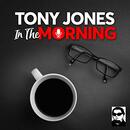 Providence, RI -- It is the mission of the RI Center for Freedom & Prosperity to engage in a rigorous and honest debate about important policy issues. Conversely, at least one bill sponsor and her Committee partisans disagree; instead preferring a rigged, one-sided debate, in a demonstrably hypocritical process. Despite a prior appeal from the Chairman and a motion from other committee members, the House Committee on Municipal Government disregarded fairness and passed a bill that would shut down open and legitimate debate on an issue of great interest to many Rhode Islanders. This after rejecting improvements to the bill as formally suggested by the RI Center for Freedom & Prosperity. H7989A, which will soon move receive a full House vote, would create a commission unfairly stacked with affordable housing advocates and without any legitimate representation of property owners, taxpayers or good government groups. Following its testimony on the original bill earlier in the month, the Center was asked by the Chairman, Rep. Robert Craven (D, N. Kingston), to work with the bill sponsor, Rep. Shelby Maldonado(D, Central Falls), to work out an arrangement whereby the nonprofit Center would be allowed to appoint at least one additional commission member. Maldonado rejected the concept, instead choosing to keep alternative voices off of the commission, which might disrupt the commission from reaching its pre-determined conclusions. Also, despite passionate appeals and a motion from Rep. Blake Filippi (I, New Shoreham) and Rep. Justin Price (R, Richmond) for the Center to be able to designate a commission member, the Chairman allowed the Democrat-controlled committee nonetheless to rubber-stamp Maldonado's bill. Hypocrisy? Even the legal council for the Speaker's office was consulted in a ploy to put down the motion. However, both his and the Chairman's claims that amending the bill in any substantial way, ostensibly by designating the Center to appoint an additional commission member, then immediately voting on bill, might violate the state's Open Meetings Act. Incredibly, just moments later, the committee passed a sub-A version of the bill that indeed added a new commission member who had the favor of the bill sponsor. The bill is flawed not only in that it creates an unfair commission membership, but it is also based on a misleading premise, while making unsupported racial implications. Also rejected by Maldonado, was language suggested by the Center to correct the bill's inaccurate and inflammatory language. The bill states that multiple localities are not meeting and have disregarded their required "state-mandated" affordable housing "thresholds". as the Center pointed out in its testimony, no such mandates exist in state law. The bill language further cites that "institutional" and "discriminatory actions" that limit home ownership must be addressed. The Center called on the sponsor to provide direct evidence of such provocative accusations, or withdraw the language. This appeal was also rejected. The Center does not oppose the commission concept and welcomes the opportunity for a public debate. However, it is the Center's position that it is necessary to have a fairly constructed commission that will explore all sides of this controversial topic; and, by virtue of the high level of research and public awareness it has raised on this issue, that the Center has earned a spot on the commission. The Center maintains that the commission must be designed to properly debate the Brookings Institution, RhodeMap RI, and the federal government's HUD agendas, as they relate to this topic, which the commission is obviously designed to advance. The Center also believes that the commission's formation should be premised on accurate and tempered language. Ironically, the committee's actions occurred less than one week after Rob Astorino, Executive for Westchester County (NY), the poster-child for HUD infringement on local sovereignty, spoke of HUD's heavy-handed tactics at a fundraising event for Center in the Chairman's own district in North Kingstown.  There are many people in this country that argue tirelessly and passionately against capitalism. They blame capitalism for low wages, income inequality, environmental destruction, homelessness, and many other issues we face year after year in America. There’s only one problem; we don’t live in a capitalist society. If one takes an honest, unbiased look at how the public and private sector influence each other, one can better understand why free market capitalism bears no responsibility for the current state of our union. What we have in America is a delicate balance of corporatism and socialism, not free market capitalism. Corporatism and socialism are like mirror images of one another. Under a corporatist system, the government redistributes money from the poor and working class to the corporations. Government subsidies and tax breaks for the pharmaceutical industry, factory farms, the big banks, and oil companies are just a few examples of corporatism at work. Big corporations use the special treatment they receive to grow larger and larger, easily out competing smaller and less politically connected businesses. Eventually, they grow into giant conglomerates that enjoy monopolies gained through corporate takeovers and collusion (cartels). In return for the handouts, the politicians get big campaign contributions to help them stay in power so they can keep the gravy train rolling along. Of course, our country is just as much socialist as it is corporatist. Socialist policies redistribute wealth from the private sector to the poor via taxation, fees, and regulations. The Supplemental Nutrition Program (SNAP and WIC), public housing, Medicaid, and the Temporary Assistance for Needy Families program (welfare) are all examples of socialism at work. Interestingly, these policies seem to benefit the conglomerates as much as the poor by helping eliminate whatever competition exists in the marketplace. Socialism often becomes a strain on small local businesses that may not be able to afford the taxes, fees, and regulations that fund socialist programs. Bigger corporations, unlike their small business counterparts, avoid the taxes and absorb the costs of funding socialist programs. As small business declines, fewer opportunities exist for the recipients of socialism to pull themselves out of government dependency. It’s a vicious cycle that preserves the status quo, much to the delight of those in power. What do the politicians get out of socialism? Well, surely there are some who are truly pure in their intentions. But, right, wrong, or indifferent, the people who receive these benefits usually reward their representatives in government with the votes they need to stay in power. Of course, the corporate conglomerates are more than happy for the government to lay the burden of funding these programs at the feet of the small business owner as they continue to consolidate their power. So, what is free market capitalism? First, in order for a free market to exist, the public and private sectors must operate independently of one another. Corporations must be prohibited from influencing government and government must be prohibited from influencing corporations. This arrangement does not exist in America. Without special treatment, big corporations and small businesses would compete with each other on a more level playing field. If corporate campaign contributions were illegal, politicians would have to rely on the individual donations of the people to fund their campaigns. In essence, the free market makes it more difficult for the power brokers to maintain the status quo, not easier. Of course, government always reserves the right to enter the private sector to defend the life, liberty, and property of individuals. However, any further involvement corrupts and destroys the free market. In a free market society the consumer is king. The people decide which companies succeed and which companies fail. In a system uncorrupted by government, individuals can vote with their wallets. They can reward companies that provide the products and services they want, at the best price. Also, if consumers decide they want more environmentally safe products, companies that produce them will survive and companies that don’t will fail. If consumers disapprove of a company’s business practices, they can boycott their products until they either meet their demands or go out of business. Without government to bail them out, corporations would have no choice but to give the public what they want. We do not have free market capitalism in America. In fact, it’s likely that America has never been a free market capitalist society. The two sectors of our society have always sought to influence one another for mutual benefit, often with great success. The era in which we live is quite possibly the furthest we’ve been from a free market system in our history. Who knows…if we tried it in earnest, it just might work. Eric Palmieri worked closely with Bob Healey on his campaign for Governor in 2014 and founded the “Democrats for Healey” movement. He is an elected member of the North Providence Democratic Town Committee, a Libertarian activist, and a student of Austrian Economics.  April 19, 2016, Salt Lake City, UT -- Ed Clark, the Libertarian Party’s candidate for President in 1980, has endorsed Gov. Gary Johnson for the Libertarian Party presidential nomination. Clark won a record vote for an LP presidential candidate, gaining more than 920,000 votes. Clark’s vote reached 12% in Alaska, and in one county-level jurisdiction Clark’s vote topped 19.5%, beating the incumbent President Jimmy Carter. Clark won the 1980 nomination after securing more than 377,000 votes for governor of California in 1978, helping to secure major party status for the LP in the nation’s most populous state. Endorsing Gov. Johnson for the LP nomination for president, Clark remarked, “I am happy to endorse Gary Johnson for the Libertarian Presidential nomination. I am confident that his experience in 2012 will make him an even more effective campaigner in 2016.”  Regulate Rhode Island will hold a news conference on Tuesday, 4/12 at 1 p.m. ET in the Statehouse shortly before the House Judiciary Committee is scheduled to hold a hearing on H 7752, the Marijuana Regulation, Control, and Taxation Act PROVIDENCE, R.I. — The Rhode Island House Judiciary Committee is scheduled to hold a hearing Tuesday on a bill that would end marijuana prohibition in the state and replace it with a system in which adults can purchase marijuana from licensed businesses, similarly to alcohol. Shortly before the hearing, marijuana market researchers, business owners, and entrepreneurs will join Regulate Rhode Island for a news conference to discuss the legislation’s potential to foster new businesses and create thousands of jobs in Rhode Island. The news conference will take place at 1 p.m. ET in the House Lounge of the Statehouse. The committee hearing is scheduled to take place in Room 101 at the rise of the House. “This bill would provide a tremendous economic boost for our state, which is one of several reasons why our state legislators should not delay voting on it,” said Regulate Rhode Island Director Jared Moffat. “This proposal would create dozens of new businesses and thousands of new jobs across Rhode Island. Our state’s unemployment rate is still significantly higher than our neighbors’, and this legislation will put many Rhode Islanders back to work.” H 7752, known as the Marijuana Regulation, Control, and Taxation Act, would make possession of limited amounts of marijuana legal for adults 21 years of age and older, and it would establish a tightly controlled system of licensed marijuana cultivation sites, testing facilities, and retail stores. “Colorado’s legal marijuana market currently employs more than 20,000 people,” said Eric Casey, a regulatory analyst for 4Front Ventures, which researches the marijuana market and monitors marijuana regulatory issues. “Instead of continuing to have an out of control underground market, Rhode Island has the opportunity to create a responsibly regulated, legal market. Workers will be better protected, provided salaries and benefits, and paying into the tax system.” “A recent analysis estimates that the legal marijuana market could infuse up to $44 billion each year into the U.S. economy by 2020,” said Adam Fine, an attorney for Vincent Sederberg, LLC, which offers legal services and consulting to state-legal marijuana businesses. “Savvy investors know that legal marijuana is the next big thing and are closely watching East Coast states like Rhode Island and Massachusetts. Whichever state moves to end marijuana prohibition first will certainly see a larger share of investment and business growth.” WHAT: News conference to discuss the potential for H 7752 to foster new businesses and create thousands of new jobs in Rhode Island, followed by the House Judiciary Committee hearing on H 7752 WHEN: Tuesday, April 12, news conference at 1 p.m. ET, committee hearing at rise of the House WHERE: News conference in the House Lounge of the Rhode Island Statehouse, committee hearing in Room 101 WHO: Spencer Blier, Rhode Island cannabis entrepreneur and investor Eric Casey, regulatory analyst, 4Front Ventures Adam Fine, attorney, Vicente Sederberg, LLC Ross Kaplan, owner and co-founder, Heritage Cannabis Company Raymond White, chief operating officer, Thomas C. Slater Compassion Center Jared Moffat, director, Regulate Rhode Island  Providence, RI - H. Russell Taub, Republican candidate for Rhode Island's First District seat in the US Congress reacted today to news of a possible Primary Battle. He acknowledged the announcement that newly minted Republican, Karen Macbeth, was joining the fight to unseat David Cicilline. "I welcome Ms. Macbeth to the fray." He said. "Her announcement is a clear indication that more and more Rhode Islanders recognize the incumbent's era is coming quickly to a close.' Taub noted the advantages to his campaign of having a primary challenger with the kind of gravitas Macbeth brings to the contest. "Don't fear the Primary." Taub intoned. "It is a valuable opportunity to get press attention well in advance of when any GOP Challenger would otherwise be able to do so in the Ocean State." He then proceeded to tick off a number of benefits his Campaign will now enjoy. First among them is the much earlier chance to meaningfully establish real name recognition throughout the District. As poling results measure that progress both fundraising and endorsements will see positive impacts. Another key benefit of the early kick-off of the formal political process is the faster start of branding activities for the Taub Campaign as well as projecting its positive message. "In essence everyone will begin paying attention much earlier so there'll be more time to communicate the Value Argument for a vote for Taub." In his formal statement, Russell Taub made note of the work Ms. Macbeth has done as a member of the Rhode Island House. "Her recent effort in kick starting the external investigation of the General Assembly's role in the 38 Studios mess has helped all Rhode Islanders." He said. Taub was also quick to note that her acquaintance with state legislative matters will be of limited value in the upcoming federal race. "I've actively participated as a staffer on RI Congressional Campaigns in both the 2012 and 2014 cycles." He pointed out. "So I come to this year's race as a candidate who's been studying national issues for half a decade or more." He noted his work on US Foreign Policy, and especially with key diplomatic and military alliances America enjoys around the world. He pointed to his detailed positions on Monetary Policy, Federal Budget issues, and the burden on the US Economy of our deficit spending and burgeoning National Debt. "It will be great to start engaging in a robust debate of these and other federal issues." Taub concluded. "So the voters of the First District can begin to make the very important choice they face on November 8th."  Washington, DC – Attorneys for presidential candidate Gov. Gary Johnson, the Libertarian Party, 2012 Green Party candidate Jill Stein, the Green Party and their respective vice-presidential candidates have filed a 55-page brief in the U.S. District Court for the District of Columbia opposing motions to dismiss their anti-trust lawsuit against the Commission of Presidential Debates (CPD), Gov. Mitt Romney, and President Obama. Bruce Fein, attorney for the Plaintiffs, explained that campaigning for the presidency is a multi-billion dollar business whose objectives include not only winning but attracting sufficient votes to influence the national political agenda. He added: “Frank Fahrenkopf, co-chair of the CPD, has touted presidential debates as ‘the Super Bowl of politics,’ whose advertising or brand value to Obama and Romney in 2012 approached $1 billion each.” Fein noted that independent experts have placed the value of free media earned by candidate Donald Trump in the 2016 presidential race to date at a staggering $2 billion. Johnson and the other plaintiffs in the lawsuit claim that participation in presidential debates is an “essential facility in the multi-billion dollar business of campaigning for the presidency; that presidential debates cannot be duplicated because the defendants agreed in writing in a Memorandum of Understanding to boycott all debates of joint appearance events with rivals outside CPD’s sponsorship; that defendants acting in concert arbitrarily denied Johnson and Stein access to presidential debates by establishing a 15% polling criterion to cripple competition in the business of campaigning for the presidency; and, that presidential debates can be conducted to optimize voter education by abandoning the 15% criterion but requiring debate participants to have qualified on enough state ballots to have a mathematical chance of winning an Electoral College majority. Applying that standard historically would have resulted in presidential debates with four to seven candidates, including Johnson and Stein in 2012, and would have enriched voter education. The United States Supreme Court has lectured: “Historically political figures outside the two major parties have been fertile sources of new ideas and new programs; many of their challenges to the status quo have in time made their way into the political mainstream. In short, the primary values protected by the First Amendment—‘a profound national commitment to the principle that debate on public issues should be uninhibited, robust, and wide-open,’—are served when election campaigns are not monopolized by the existing political parties.” Fein argued that Citizens United v. FEC “changed the business of campaigning for the presidency as profoundly as the internal combustion engine changed the business of transportation or the Internet changed the business of communications. The decision unleashed limitless corporate, union, and other funds into presidential campaigns that shattered all prior business models.” Fein amplified based on antitrust precedents: “Freedom to campaign for the presidency, including participation in presidential debates, means freedom for all and not for some. Freedom to campaign for the presidency, including participation in presidential debates, is guaranteed by the Constitution, but freedom to combine to keep others from campaigning or participating is not. Freedom from government interference under the First Amendment does not sanction repression of that freedom by private interests.” Fein further noted that “the CPD was born in original sin intending to limit presidential debates to the nominees of the Republican and Democratic parties” by “hijacking their sponsorship from the League of Women Voters.” The CPD, Gov. Romney and President Obama earlier this year filed motions to dismiss the lawsuit. In a filing this week, the plaintiffs responded to those motions and urged the Court to allow the case to proceed." |
We'd love to hear from you
|

 RSS Feed
RSS Feed















